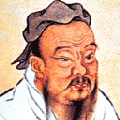049 - Manos trabajadoras
Hands|workers
049 - Arbeitende Hände
049 - Working Hands
049 - Les mains qui travaillent
049 - Mani di lavoro
049 - Darbo rankos
049 - Werkende handen
049 - Mãos à obra
049 - Рабочие руки
Manos trabajadoras
Working hands
NARRADORA
En la China imperial,
|||imperial
In imperial China,
los mandarines se dejaban
the|mandarins||were letting
οι μανδαρίνοι έμειναν
the mandarins were left
mandarynki zostały pozostawione
las uñas largas, larguísimas,
the|nails|long|very long
μακριά, πολύ μακριά νύχια,
long, very long nails,
długie, bardzo długie paznokcie,
para mostrar que sus manos
|to show|||
to show that your hands
nunca habían trabajado.
never||worked
They had never worked.
CHINO
CHINESE
Un mandarín no hace labores manuales.
A|mandarin|||work|manual
A mandarin does not do manual labor.
Eso es cosa de la gentuza.
|||||trash
|||||gente desprezível
That is a thing of the crowd.
NARRADORA
NARRATOR
Los filósofos griegos
The|philosophers|Greek
Greek philosophers
entendían que
they understood|
they understood that
un hombre libre
a free man
no se rebajaba a trabajar
not||would lower||
did not get down to work
con sus manos.
With his hands.
Eso era tarea
||task
That was homework
de mujeres y esclavos.
|||slaves
of women and slaves.
Aristóteles lo explicaba así:
Aristotle||explained|
Aristotle explained it this way:
ARISTÓTELES
ARISTOTLE
Los trabajos manuales
|jobs|
Manual works
carecen de nobleza
lack||nobility
they lack nobility
y oprimen la inteligencia.
|they oppress||intelligence
and oppress intelligence.
El trabajo manual corrompe al hombre
The|work|manual|corrupts||
Manual work corrupts man
porque mezcla el cuerpo material
|it mixes|||material
because it mixes the material body
con el alma espiritual.
||soul|spiritual
With the spiritual soul.
NARRADORA
Cicerón y los senadores romanos
Cicero|and||senators|Roman
Cicero and the Roman senators
heredaron de los griegos
they inherited|||Greeks
inherited from the greeks
el desprecio hacia el trabajo manual.
the|disdain|toward|||manual
the contempt for manual labor.
La misma palabra “trabajo”
|same||
The same word "work"
viene del latín “tripalium”,
||Latin|workbench
comes from the Latin "tripalium",
tres palos,
three|sticks
three sticks,
el yugo en que amarraban
the|yoke|in||they would tie
the yoke in which they tied
y azotaban a los esclavos.
and|they were whipping|||
|atormentavam|||
and whipped the slaves.
ROMANO
ROMAN
ROMAN
Un ciudadano romano
|citizen|Roman
A Roman citizen
no se ensucia las manos trabajando.
don't||gets dirty||hands|
Do not get your hands dirty.
он не пачкает руки работая.
NARRADORA
NARRATOR
En la cultura judía,
In|||Jewish
In the Jewish culture,
В еврейской культуре
el trabajo es visto
|||seen
work is seen
работа видна
como consecuencia del pecado original.
|consequence||sin|original
as a consequence of original sin.
как следствие первородного греха.
DIOS
GOD
Por haber comido del árbol
||eaten||tree
For having eaten from the tree
За то, что ел с дерева
que te prohibí,
||I prohibited
I forbade you
что я запретил тебе,
maldita será la tierra.
wretched|will be||
Damn the earth.
проклята будет земля.
De ahora en adelante,
Of|||forward
Henceforth,
Отныне
comerás el pan
you will eat||
you will eat the bread
con el sudor de tu frente.
||sweat|||forehead
With the sweat of your forehead.
с потом твоего лба.
NARRADORA
NARRATOR
Los teólogos cristianos
The|theologians|Christians
Christian theologians
entendieron que el trabajo
they understood|||
they understood that work
era un penoso castigo
was||painful|punishment
it was a painful punishment
por la desobediencia de Adán.
||disobedience||Adam
by the disobedience of Adam.
NARRADORA
NARRATOR
La nobleza española
|nobility|
Spanish nobility
vio la agricultura
||agriculture
saw agriculture
y el trabajo manual
and manual work
como un oficio vil, tan vil que...
||occupation|vile||vile|
like a vile trade, so vile that ...
HIDALGO
nobleman
GENTLEMAN
No, no y no.
No no and no.
Aunque muera de hambre,
|die||
Even if I starve,
no me rebajaré a trabajar.
no|my|I will lower||
I will not get down to work.
Señora, ¿dónde están los palillos?
||||toothpicks
||||palitos de dente
Madam, where are the chopsticks?
Madame, où sont les baguettes?
NARRADORA
NARRATOR
Muchos hidalgos arruinados
Many|noblemen|ruined
|nobres|
Many ruined nobles
no tenían ni para comer.
no||||
They didn't even have to eat.
Pero salían a la calle
|they would go out|||
But they went out
después de la hora de almuerzo
after|||||lunch
after lunch time
con un palillo
||toothpick
with a stick
avec un cure-dent
escarbándose los dientes
scratching||
brushing teeth
cueillette des dents
para disimular ante los vecinos...
for|to hide|||neighbors
to hide from the neighbors ...
se cacher des voisins ...
LOCUTOR
ANNOUNCER
Qué equivocados
|wrong
How wrong
estaban los mandarines chinos
||mandarins|Chinese
were the chinese mandarins
y los filósofos griegos
and the Greek philosophers
y los senadores romanos
||senators|
and the Roman senators
y los teólogos cristianos
||theologians|
and Christian theologians
y los hidalgos españoles.
||nobles|
and the Spanish nobles.
Qué ignorantes.
What|ignorant
How ignorant.
LOCUTORA
ANNOUNCER
Porque fueron las manos
Because|were||
Because they were the hands
las que desarrollaron el cerebro.
the||they developed||
those that developed the brain.
LOCUTOR
ANNOUNCER
Fue el trabajo manual
It was manual work
de nuestros antepasados,
||ancestors
Of our ancestors,
fabricando hachas de piedra
manufacturing|axes||stone
making stone axes
para cazar
|to hunt
to hunt
y agujas de hueso para coser,
|needles||bone||to sew
and bone needles for sewing,
lo que permitió la aparición de la inteligencia
||allowed||appearance|||
which allowed the emergence of intelligence
en la especie humana.
In the human species.
LOCUTORA
ANNOUNCER
Primero fueron las manos
First were the hands
y luego vinieron las ideas.
and||they came||
and then came the ideas.
LOCUTOR
Una palma y cinco dedos:
|palm|||fingers
One palm and five fingers:
lo más humano de lo humano.
|more||||
the most human of the human.
LOCUTORA
ANNOUNCER
Mira tus manos,
Look||
Look at your hands
acaricia una con otra.
it caresses|||
caresses one another.
Bésalas.
Kiss them
kiss them
Y recuerda:
And remember:
LOCUTOR
Nos hicimos hombres y mujeres
We|we became|||
We became men and women
gracias a nuestras manos.
thank you|||
thanks to our hands.

